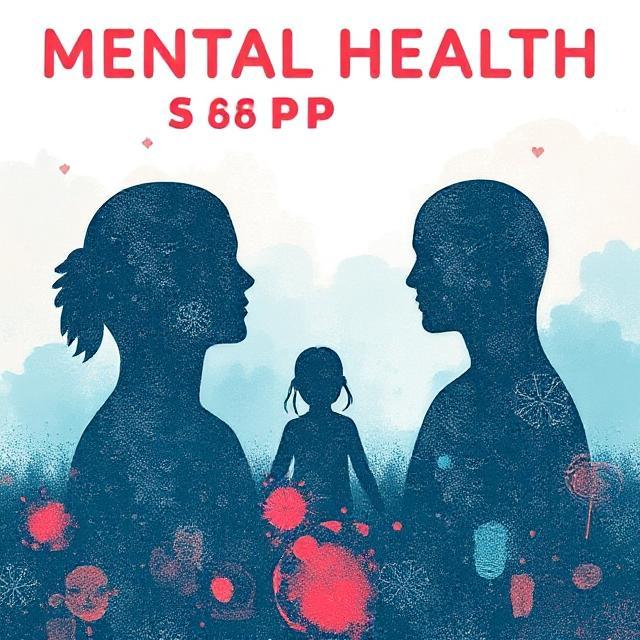Mental health is integral to health, yet overlooked or stigmatized. Visual resources raise awareness and stimulate help seeking behavior the mental health posters are very important. Learn about the area of mental health posters and drill down to children’s mental health posters. Associated areas that will be covered include Men’s Mental Health Day. Mental health awareness courses, free mental health first aid courses, children’s mental health courses, mental health counseling courses.
The Role of Mental Health Posters
Mental health posters are an effective channel through which meaningful messages can be conveyed to an audience on good mental health. They may encompass broader settings, including schools, workplaces, health centers, and community places. Information represented visually and textually offers a means of transferring that information. Removing the stigma associated with mental health variables, encouraging the pursuit of help.
Awareness Creation
Some of the major functions associated with mental health posters are to inform and raise awareness about mental health. If the posters are out in public, then more people likely to succeed what is on the poster. They could easily be used to illustrate some very common mental states, symptoms to watch out.
Providing Information
These mental health posters may also include versatile and very useful resource information. This is very important to any individual who may not know where to receive help. For instance, a poster in a school’s hallway with contact information regarding the school’s counseling services.
Stigma Reduction
One of the main forces that deter people from seeking treatment is stigma. Posters normalizing mental health discourse by representing it as something common and treatable, just like any other aspect of health. These posters will carry messages underscoring how important well-being is for good mental health.
Children’s Mental Health Posters
Children’s mental health posters can help enhance emotional literacy since they will help children identify feelings and learn to identify them. The vibrant illustrations with easy language can make any complex feeling easy to understand, and the kid expresses those feelings with appropriateness.
Encouraging Help-Seeking Behavior
Finally, it helps children learn when to seek help. Relatable posters that show scenarios of children with challenges, or difficult situations they are in, yet can seek help from an adult in a position of authority, can make the act of help-seeking normal. This is likely to enable children to know that seeking help is equally an option.
Giving Parents and Educators the Facts
This could also prove useful for parents and teachers by putting up posters on children’s mental health that provide telltale signs that children are struggling with their mental health and how to help a child in need.
Posters on Men’s Mental Health
Another critical area where targeted awareness campaigns help is in men’s mental health. Traditional social norms and expectations laid down by society often become barriers to men seeking help with mental health, in which case posters are an essential element for this issue.
Addressing Societal Expectations
The posters on men’s mental health can thus confront the societal expectations and stereotypes that influence men not to show vulnerability. With messages validating their feelings and encouraging them to express themselves, such posters can therefore break barriers to mental health care.

Men’s Mental Health Day Highlighted
The importance of Men’s Mental Health Day includes making people realize the issues that surround men’s mental health. The posters advertising this day can incite men to take part in different activities related to this and find support in raising their voices regarding their mental health.
Understand and provide the required resources and support
The posters may also include setting directions: where to find the correct resources for men, including support groups, hotlines, and counseling services. This can facilitate men’s search for help.
Mental Health Awareness Courses
It can be said that education is one such potent weapon in enhancing mental health. Mental health counselling courses can equip one with the knowledge and skills to support both personal and other people’s mental health.
Reducing Stigma
The role of education in decreasing stigma is very noteworthy. Such awareness courses correct the negative information and enlighten people with adequate knowledge of the concept of mental health so that they develop a changed attitude towards discussing and openly sharing mental health issues.
Encouragement of Early Intervention
Early intervention plays a huge role in tackling mental health issues effectively. Beginner mental health awareness training programs teach learners how to identify the first tell-tale signs and react appropriately, which benefits in maximizing positive outcomes.
Free Courses in Mental Health First Aid
The mental health first-aid course is purposed to help one handle mental breakdowns, know how to respond to crises and provide support until professional help is found. Free courses will make them more open to the public.
First Responder Training
Free mental health first-aid courses are also offered for the general public, focusing on first responses in mental health crises, which means assessing situations, giving reassurance, and linking the person to professional help.
Community Support Building
It can also help create a community support network. The more people trained in mental health first aid, the higher the likelihood a community has to evolve into a more supportive community toward those in crisis and less reliant on professional services.
Empowerment of the Person
Free psychological first-aid courses empower people to act if they encounter someone in crisis. This way, it heightens confidence and thus readability, making one more likely to act in the face of an issue.
Children’s Mental Health Courses
The courses focused on the mental health of children can help parents, educators, and other carers with knowledge and skills.
Developmental Differences
These courses may also enable participants to appreciate the developmental differences affecting mental health for example, how mental health problems are likely to manifest in children differently than in adults.
Effective Support
The courses will also be able to offer tips on how best to support a child with mental health issues. It may include techniques to handle anxiety, equipping children with coping skills, and creating supportive environments.
Collaboration with the Professionals
It can also focus on children’s mental health courses, focusing on working together with mental health professionals. One can learn how to work effectively with counselors, psychologists, and other specialists.
Mental Health Counseling Courses
Courses in supervision help in the training of professionals who are involved in the direct support of people with mental health issues.
Developing Counseling Skills
The courses discussed reflect a wide array of therapeutic techniques, ethical issues, and relational communication skills that are essential for the mental health counselor. This training is essential for the creation of a competent, genuinely empathetic mental health counselor.
Sensitivity to Diverse Needs
Courses in mental health counseling emphasize knowledge in meeting the needs of diverse clientele, and cultural proficiency to be able to practice with diverse people at large.
This to some extent explains why mental health counselors require continuous professional development. These courses would provide an excellent opportunity for counselors to update their knowledge with the latest research, techniques, and best practices in the subject area.
Role of Primary Care Mental Health Teams
Primary care team mental health has a significant role in undertaking appropriate early identification and initiation of treatment of common mental health problems. Most of the people, while seeking help, come into contact first with primary care mental health teams.

Integrating Mental Health into Primary Care
Integrating mental health services into primary care holds great promise to increase access and reduce the stigma of seeking help. Primary care teams may provide initial assessment, brief intervention, and referral to specialist services as required.
Holistic Care
It is also true that primary care mental health teams in many respects offer holistic care, which addresses both physical and mental health needs. This integrated approach would therefore achieve better all-round health outcomes for individuals.
Conclusion
The mental health promotional activity which was a very important component of mental health awareness posters, ,courses, and specialized training, played a very vital role in the promotion and support of people affected by mental health issues. Awareness forums, information provision, and de-stigmatization raise the possibility of people seeking help and supporting one another. These efforts, whether through children’s mental health posters campaigns with free mental health first aid courses. Also, the integration of mental health services into primary care and specialized counseling courses. These actions together make for a comprehensive mental health approach that ensures better outcomes and a healthier, more resilient community.





